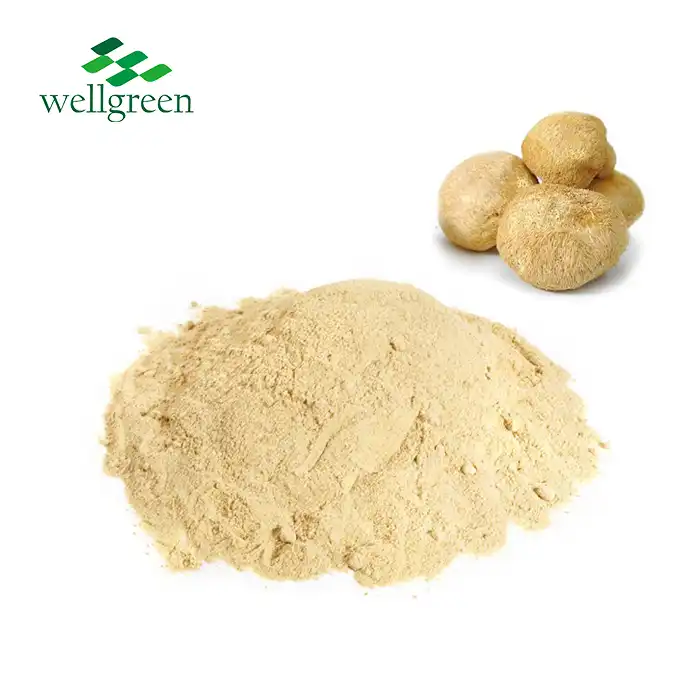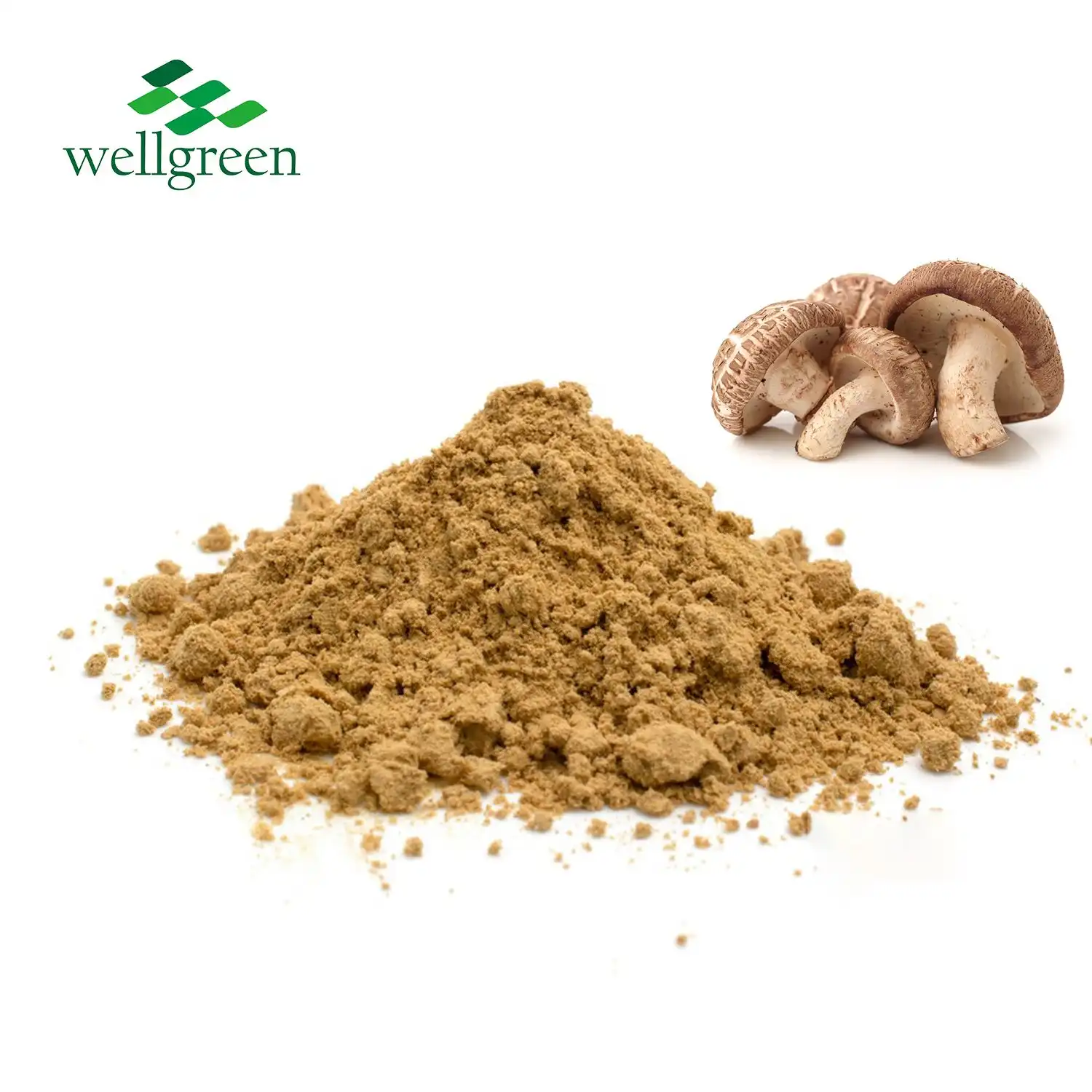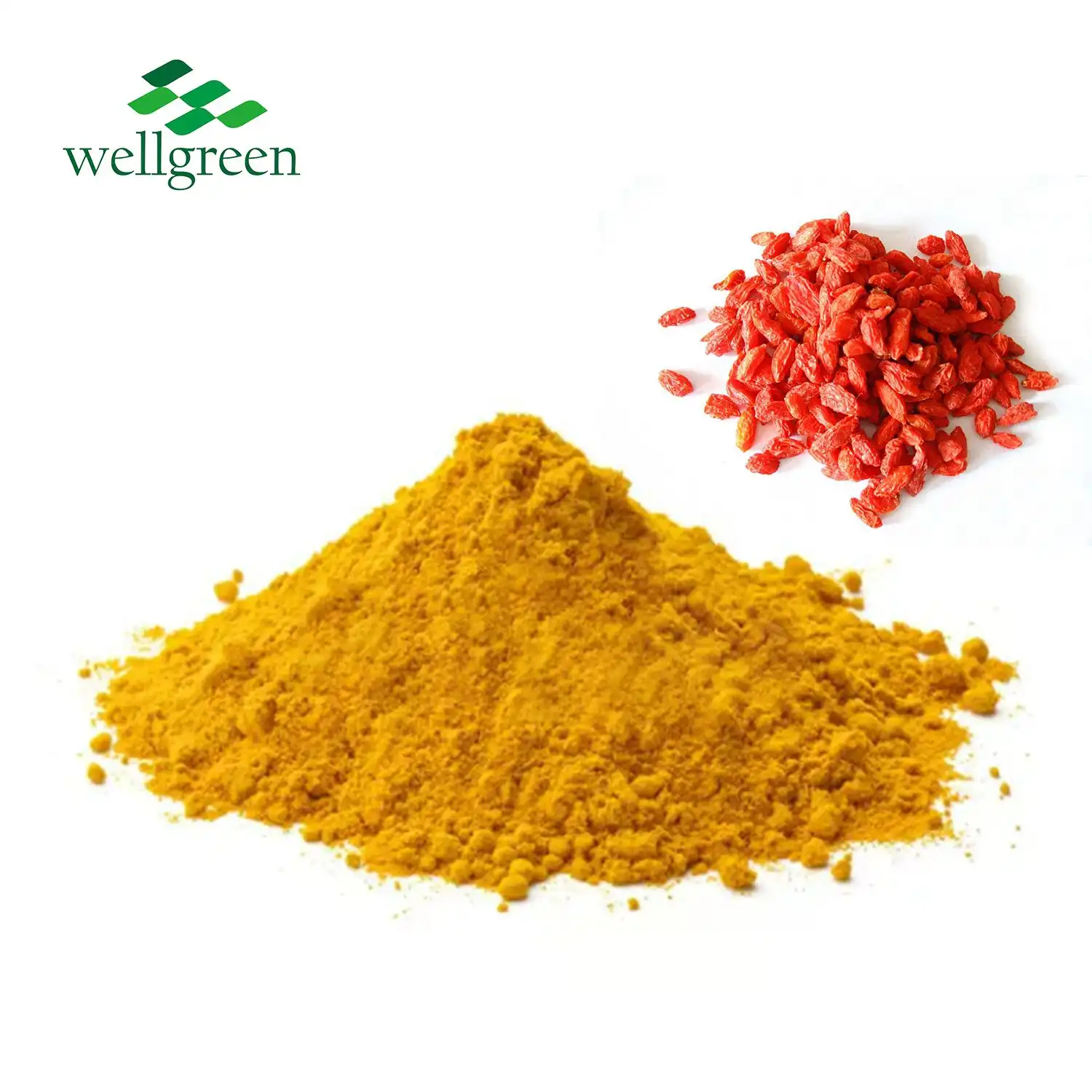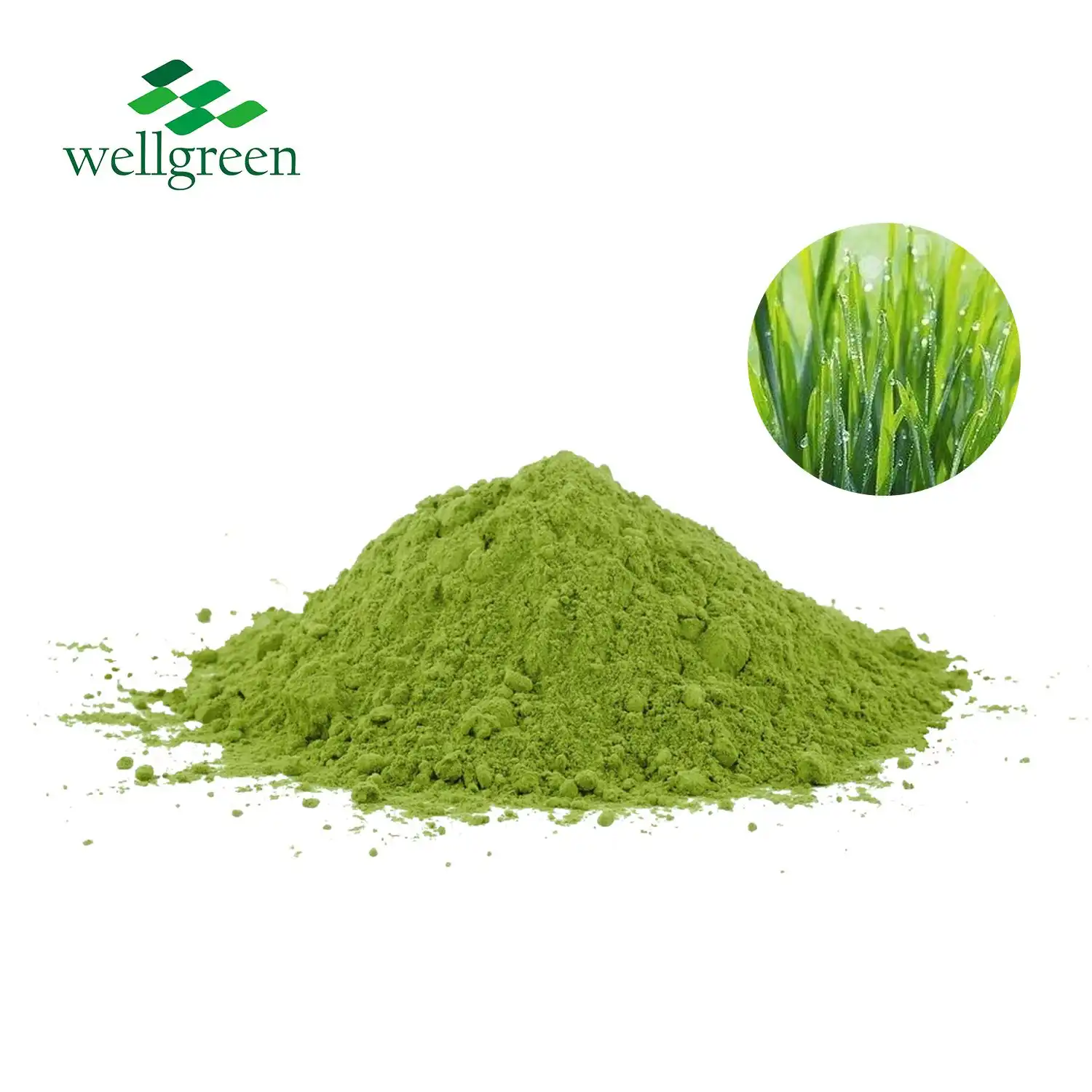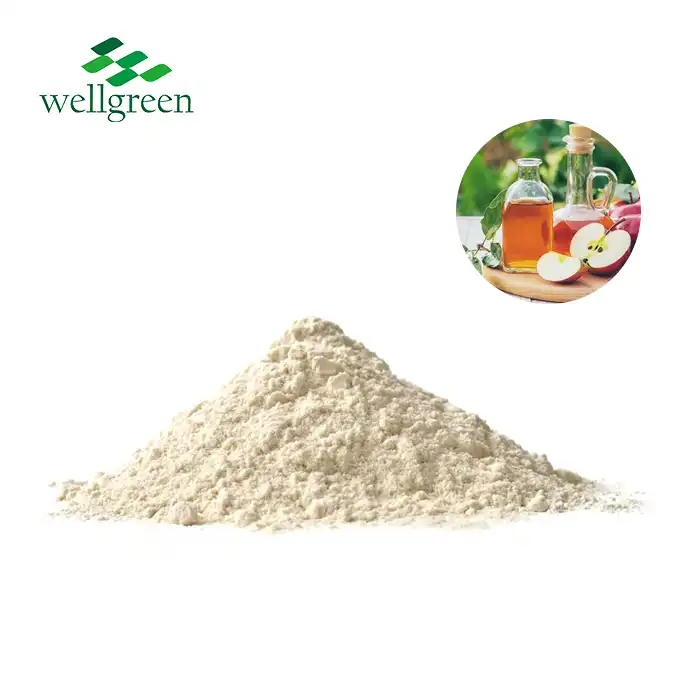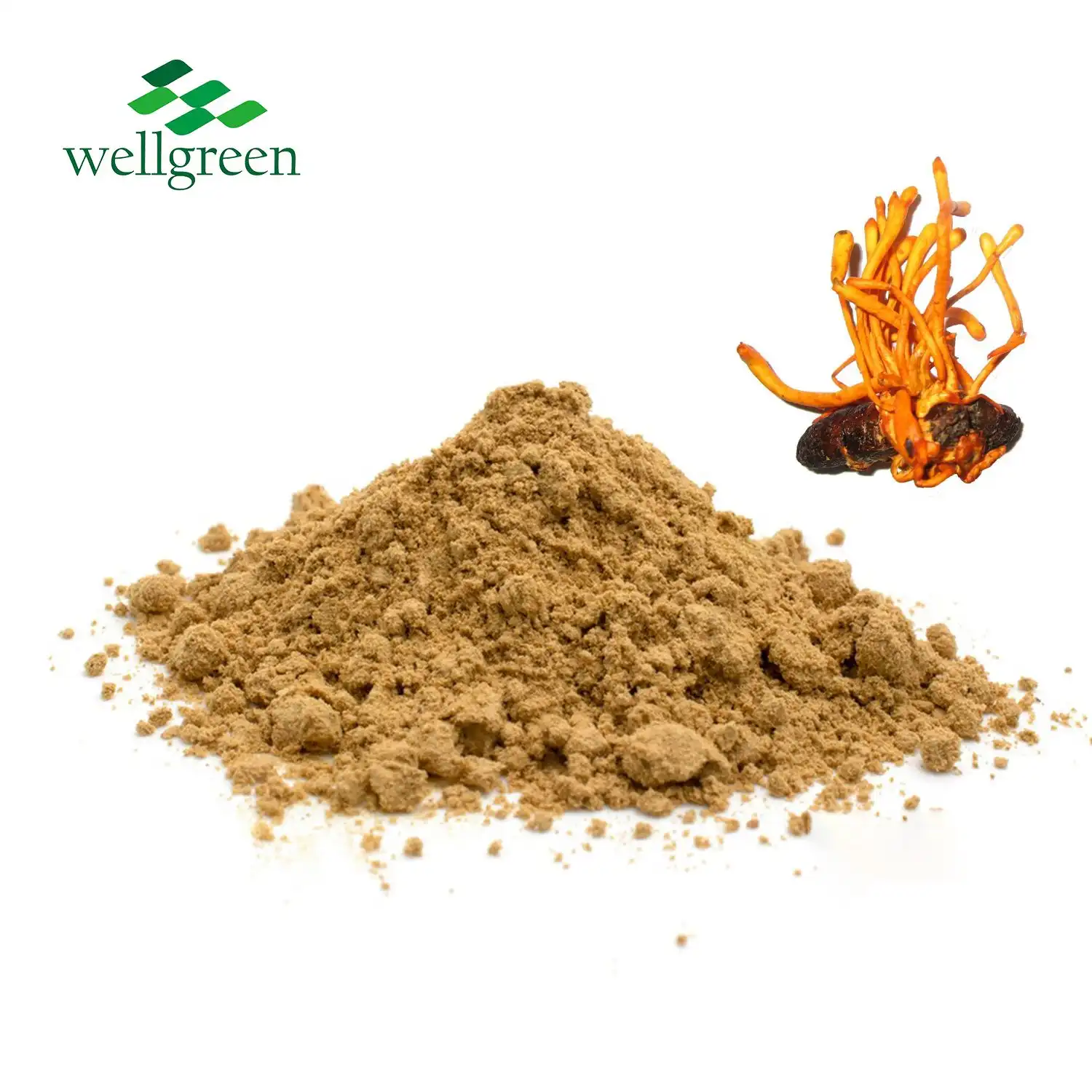What is Organic Turmeric Powder?
2025-07-30 13:31:47
Organic turmeric powder is a vibrant golden spice derived from the rhizome of the Curcuma longa plant, cultivated using natural farming methods without synthetic pesticides or fertilizers. This premium version of the traditional turmeric spice is prized for its purity, potency, and potential health benefits. Certified organic turmeric powder undergoes rigorous quality control processes to ensure it meets strict standards for organic production, resulting in a product that's free from harmful chemicals and rich in beneficial compounds like curcumin. Whether used in cooking, as a dietary supplement, or in natural remedies, organic turmeric powder offers a clean, sustainable option for those seeking the full spectrum of turmeric's renowned properties.

From Root to Spice: Turmeric's Journey
Cultivation and Harvesting
The journey of organic turmeric powder begins in the lush fields where Curcuma longa plants thrive. These plants, with their broad green leaves and vibrant flowers, are nurtured in nutrient-rich soil without the use of synthetic chemicals. Organic farmers employ natural pest control methods and crop rotation techniques to maintain soil health and protect the plants. After 8-10 months of growth, when the leaves begin to yellow and wither, it's time for harvest. Skilled farmers carefully dig up the rhizomes, ensuring minimal damage to preserve their quality.
Processing and Drying
Once harvested, the turmeric rhizomes for turmeric powder organic undergo meticulous cleaning to remove dirt and debris. The cleaned rhizomes are then boiled or steamed to soften them and enhance their color and flavor profile. This process also helps to eliminate any potential pathogens. After boiling, the rhizomes are dried thoroughly, often under the sun or in controlled environments, to reduce moisture content and prevent mold growth. The drying process can take several days, during which the rhizomes are carefully monitored and turned to ensure even drying.
Grinding and Packaging
The final step in transforming turmeric root into powder involves grinding the dried rhizomes. In organic production, this is often done using traditional stone grinders or modern equipment that doesn't introduce contaminants. The resulting powder is sifted to achieve a uniform texture. Great care is taken to maintain the powder's purity throughout the grinding and packaging processes. The organic turmeric powder is then sealed in food-grade, airtight containers to preserve its freshness, color, and potency. This meticulous journey from root to spice ensures that organic turmeric powder retains its natural goodness and meets the high standards expected of organic products.
Organic Certification: What It Really Means
Stringent Standards
Organic certification is not merely a label; it's a testament to a rigorous process that ensures the integrity of organic turmeric powder. Certification bodies like the USDA (United States Department of Agriculture) set stringent standards that cover every aspect of production, from soil management to processing and packaging. These standards prohibit the use of synthetic fertilizers, pesticides, and genetically modified organisms (GMOs). They also mandate sustainable farming practices that promote soil and water conservation. For turmeric powder to be certified organic, it must be produced in compliance with these comprehensive guidelines, ensuring a product that's not only free from harmful chemicals but also environmentally sustainable.
Verification and Compliance
Achieving organic certification involves a thorough verification process. Farms and processing facilities undergo regular inspections by accredited third-party certifiers. These inspections involve detailed reviews of farm records, soil samples, and production methods. Producers must demonstrate full compliance with organic standards and maintain meticulous documentation of their practices. The certification process also includes traceability measures to ensure that organic turmeric powder can be traced back to its source. This level of scrutiny and accountability gives consumers confidence in the authenticity and quality of organic turmeric powder.
Beyond Chemical-Free
While the absence of synthetic chemicals is a crucial aspect of organic certification, it encompasses much more. Organic certification also addresses issues of biodiversity, soil health, and animal welfare. For turmeric production, this means implementing crop rotation practices, using natural pest control methods, and promoting a balanced ecosystem on the farm. The certification process encourages sustainable water use and energy conservation in processing facilities. By choosing certified organic turmeric powder, consumers support a holistic approach to agriculture that benefits the environment, farmers, and ultimately, their health.

Curcumin: The Power Behind Turmeric's Benefits
Chemical Composition
At the heart of turmeric's renowned properties lies curcumin, a polyphenol compound that gives the spice its characteristic golden hue. Curcumin belongs to a group of compounds called curcuminoids, which make up about 2-5% of turmeric powder. In organic turmeric powder, the concentration of curcumin can be higher due to optimal growing conditions and the absence of synthetic chemicals that might interfere with the plant's natural metabolic processes. Alongside curcumin, organic turmeric powder contains essential oils, proteins, resins, and a variety of vitamins and minerals, creating a complex phytochemical profile that contributes to its overall benefits.
Antioxidant and Anti-Inflammatory Properties
Curcumin's potent antioxidant properties have been the subject of extensive research. It neutralizes free radicals in the body, helping to protect cells from oxidative stress and damage. This antioxidant activity is particularly noteworthy in organic turmeric powder and bulk turmeric powder, where the absence of chemical residues ensures a pure, unadulterated source of these beneficial compounds. Furthermore, curcumin exhibits powerful anti-inflammatory effects. It modulates various inflammatory pathways in the body, potentially offering relief from chronic inflammation associated with various health conditions. The synergistic effect of curcumin with other natural compounds in organic turmeric powder may enhance its anti-inflammatory potential.
Bioavailability and Absorption
While curcumin's benefits are impressive, its bioavailability – the extent to which it's absorbed and utilized by the body – presents a challenge. Curcumin is poorly absorbed in the gastrointestinal tract and rapidly metabolized and eliminated from the body. However, organic turmeric powder may offer advantages in this regard. The presence of natural oils and fibers in whole organic turmeric powder can enhance curcumin absorption. Additionally, combining organic turmeric powder with black pepper, which contains piperine, can significantly increase curcumin's bioavailability. This natural synergy underscores the importance of using whole, organic turmeric powder rather than isolated curcumin supplements for maximum benefit.
Conclusion
Organic turmeric powder stands out as a superior choice for those seeking the full spectrum of turmeric's benefits. Its journey from carefully nurtured roots to finely ground spice ensures purity and potency. The rigorous organic certification process guarantees a product free from harmful chemicals and produced with environmental stewardship in mind. At its core, the powerful compound curcumin, along with a host of other beneficial nutrients, makes organic turmeric powder a valuable addition to a health-conscious lifestyle. By choosing organic, consumers not only prioritize their well-being but also support sustainable agricultural practices that benefit our planet.
Contact Us
Experience the unparalleled quality of our organic turmeric powder. For more information or to place an order, contact us at wgt@allwellcn.com. Elevate your health and culinary experiences with the golden goodness of organic turmeric powder today!
References
1. Prasad S, Aggarwal BB. Turmeric, the Golden Spice: From Traditional Medicine to Modern Medicine. In: Herbal Medicine: Biomolecular and Clinical Aspects. 2nd edition. CRC Press/Taylor & Francis; 2011.
2. Kocaadam B, Şanlier N. Curcumin, an active component of turmeric (Curcuma longa), and its effects on health. Critical Reviews in Food Science and Nutrition. 2017;57(13):2889-2895.
3. Tayyem RF, Heath DD, Al-Delaimy WK, Rock CL. Curcumin content of turmeric and curry powders. Nutrition and Cancer. 2006;55(2):126-131.
4. Shehzad A, Wahid F, Lee YS. Curcumin in cancer chemoprevention: molecular targets, pharmacokinetics, bioavailability, and clinical trials. Archiv der Pharmazie. 2010;343(9):489-499.
5. Hewlings SJ, Kalman DS. Curcumin: A Review of Its Effects on Human Health. Foods. 2017;6(10):92.
6. Gupta SC, Patchva S, Aggarwal BB. Therapeutic Roles of Curcumin: Lessons Learned from Clinical Trials. The AAPS Journal. 2013;15(1):195-218.

